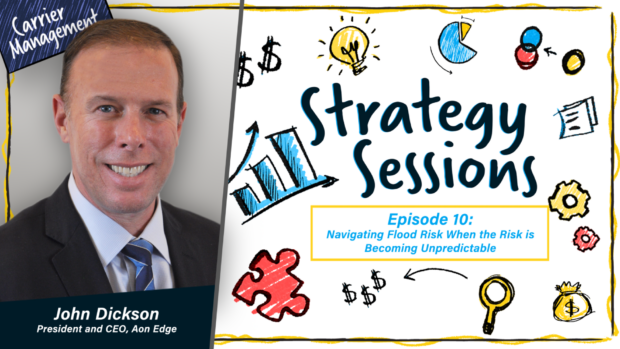While the 2022 Atlantic hurricane season has seen slower activity at the beginning, experts are warning that doesn’t mean insurers and their clients should let their guards down.
In fact, the U.S. Department of Commerce’s National Oceanic and Atmospheric Administration said in its annual mid-season update that atmospheric and oceanic conditions still favor an above-normal 2022 Atlantic hurricane season. The update was issued by the Climate Prediction Center, a division of the National Weather Service.
“I urge everyone to remain vigilant as we enter the peak months of hurricane season,” said Secretary of Commerce Gina Raimondo in the media briefing. “The experts at NOAA will continue to provide the science, data and services needed to help communities become hurricane-resilient and climate-ready for the remainder of hurricane season and beyond.”
This was most recently evidenced in the U.S. by thunderstorms and heavy rain in parts of northwest Georgia over the Labor Day weekend, which caused flash flooding in some areas, the Associated Press reported.
Among reports of increasing severe weather events, where the next flooding event will come from and how severe it will be are becoming difficult questions to answer.
According to a new survey from Policygenius, young homeowners are becoming increasingly concerned about the damage climate change-related extremeweather could do to their homes.
The survey found that 72 percent of young insured homeowners (age 18 to 34) believe it is very or somewhat likely that their homes will be damaged by extreme weather in the next 30 years compared to 45 percent of all adult homeowners. And 64 percent of young homeowners believe they will end up moving due to climate change-related extreme weather in the next 30 years compared to 27 percent of all homeowners.
John Dickson, president and CEO of Aon Edge, is joining Carrier Management’s Strategy Sessions on Tuesday, Sept. 13, to discuss how insurers can navigate an unpredictable natural catastrophe environment and how their clients can make sure they have the right coverage to stay protected.
He’ll discuss the biggest considerations for insurers when covering flood, in particular, and share what he’s observed the insurance industry doing well in keeping up with growing concerns about flood risk.
During the conversation, webinar attendees will learn about the challenges the industry still faces when covering flood, ways insurers can educate clients about managing their own flood risk, and why homeowners insurance isn’t enough to protect from flood damage. Dickson will also explore what the industry has learned from recent major weather events and how unpredictable weather patterns are creating insurance challenges for the future.
Sign up to attend this free webinar on Tuesday, Sept. 13, at 1 p.m. ET. Thanks for tuning in!





















 AI Got Beat by Traditional Models in Forecasting NYC’s Blizzard
AI Got Beat by Traditional Models in Forecasting NYC’s Blizzard  New Texas Law Requires Insurers Provide Reason for Declining or Canceling Policies
New Texas Law Requires Insurers Provide Reason for Declining or Canceling Policies  Premium Slowdown, Inflation Factors to Lead to Higher P/C Combined Ratio: AM Best
Premium Slowdown, Inflation Factors to Lead to Higher P/C Combined Ratio: AM Best  Viewpoint: Runoff Specialists Have Evolved Into Key Strategic Partners for Insurers
Viewpoint: Runoff Specialists Have Evolved Into Key Strategic Partners for Insurers 





